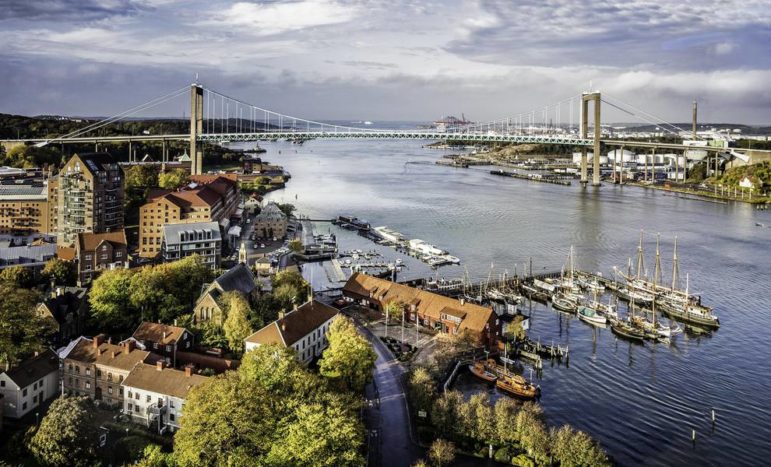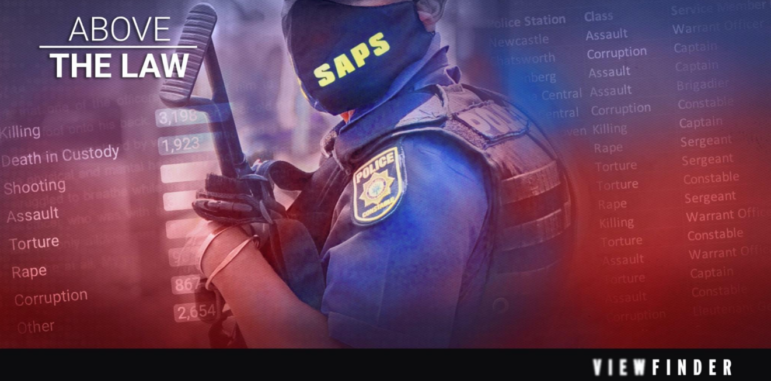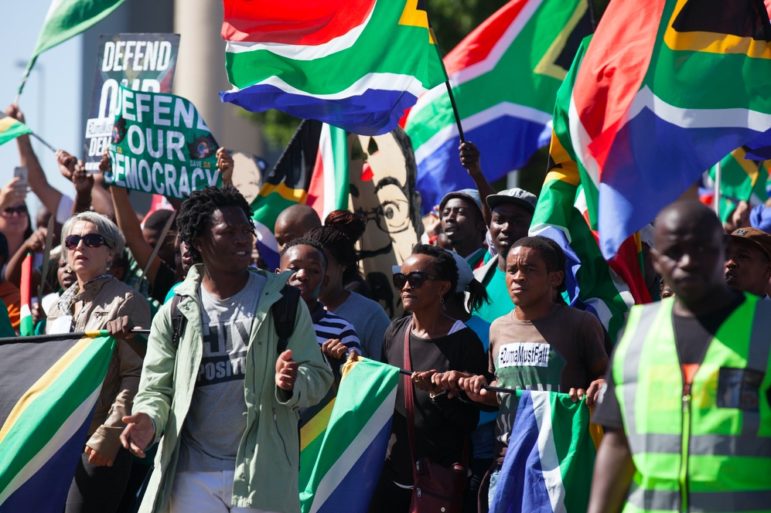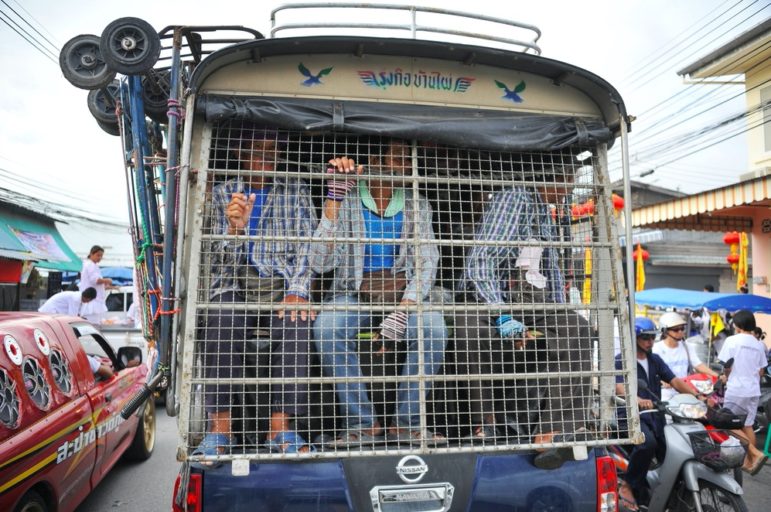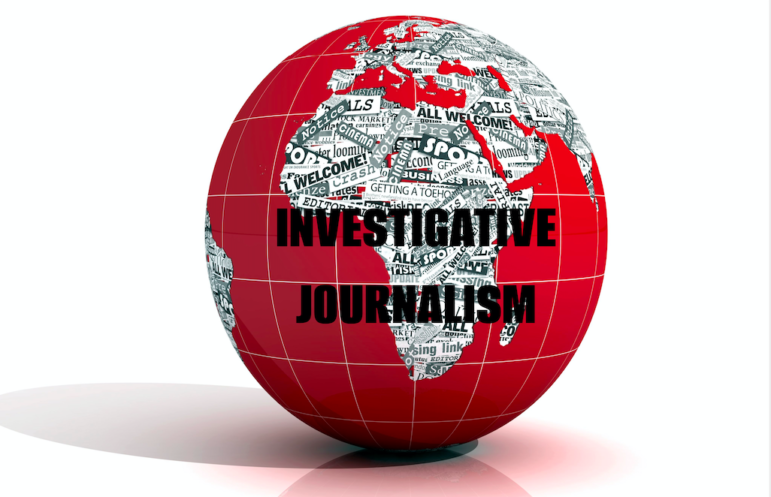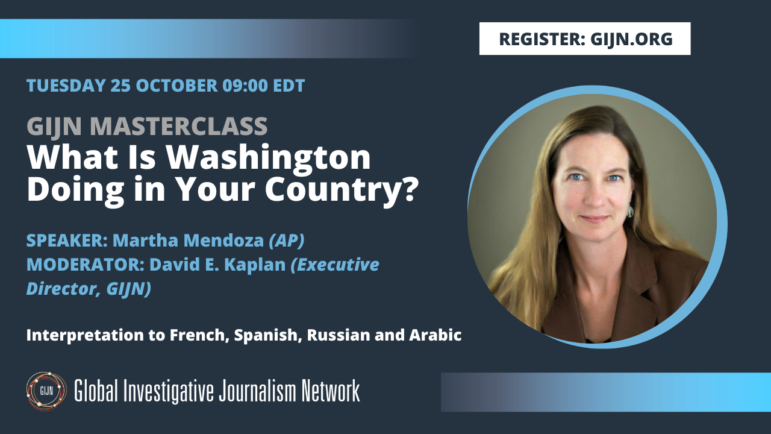
GIJN Masterclass: What Is Washington Doing in Your Country?
In this online Masterclass, Pulitzer Prize-winning journalist Martha Mendoza is in conversation with GIJN’s David Kaplan. Mendoza will offer hands-on training to accompany her popular GIJN tipsheet, Investigating US Influence Around the World, designed to help journalists outside the US understand how their countries are impacted by Washington — and how to report it more effectively.



